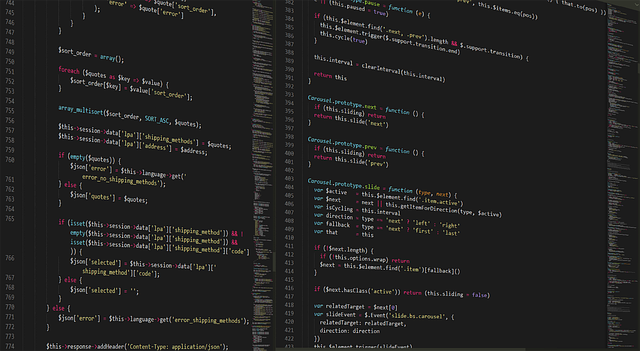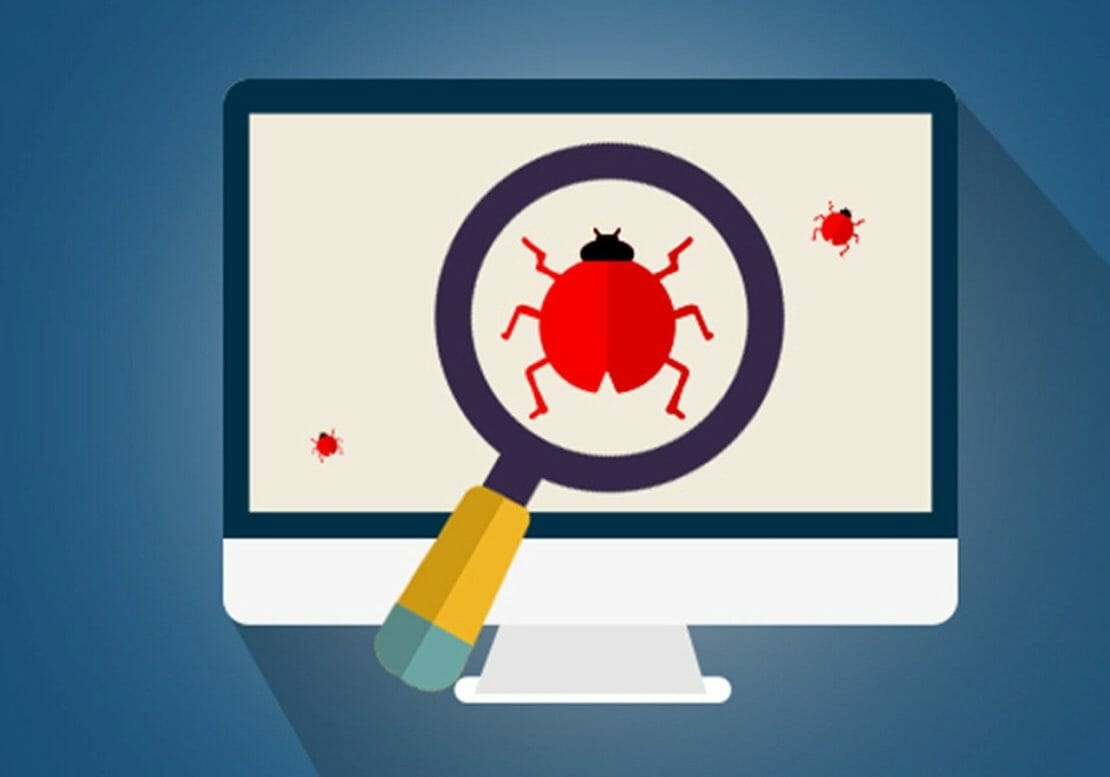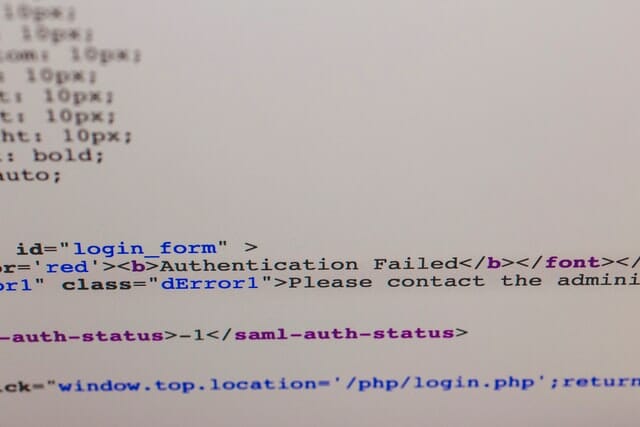
Choosing the right functional testing tool can be a daunting task. With so many options on the market, it's hard to know where to start. And, with new tools being released all the time, it can be challenging to keep up with the latest trends.
For you to make an informed choice, we've created this complete guide to functional testing tools. First, we'll discuss functional testing and why it's essential. Then, we'll compare some of the most popular functional testing tools on the market today. Finally, we'll share some tips on choosing the right tool for your needs.
So, whether you're just getting started with functional testing or a seasoned pro, this guide will give you the relevant information to choose the right functional testing tool for your project.
Functional testing is software testing that ensures that the software behaves as expected. This means verifying that the software functions correctly and meets the requirements specified by the client or customer.
Testers can use this testing to test any software, including web applications, mobile apps, desktop applications, etc.
The functional tests may include performance testing, continuous testing, and many more
Functional testing is essential because it helps ensure that the software works as intended and meets the users' needs.
By verifying that the software functions correctly, functional testing can help to prevent bugs and errors from occurring in the final product. This can save time and money by avoiding potential problems down the road.
In addition, functional testing can also help improve the user experience by ensuring that the software is easy to use and meets their needs. By testing the software's functionality, you can make sure that users will be able to use it as intended and will not run into any problems.

Functional testing tools are essential for ensuring that software works as expected. But with different options on the market, how do you know which one is right for your project?
To choose the best functional testing tool, you'll need to consider a few key factors such as:
Functional testing tools usually support a variety of platforms such as Windows, macOS, and Linux. Some tools also support mobile platforms such as iOS and Android.
When choosing a functional testing tool, you'll need to ensure that it supports the platform you're working on.
In addition, you'll need to consider how the tool handles tagging. Tagging is a way of labeling tests to be run together. For example, you might tag all tests for a login system with "login."
Tagging is important because it allows you to run only the tests you need. This can save you a lot of time, especially if you have an extensive test suite.
The selection of programming language and development environment can significantly impact the team's efficiency.
Some languages are more suitable for certain types of tests than others. For example, C++ is often used for low-level system testing, while Java is used for application testing.
You should also take into consideration the development environment. For example, if the team is using a continuous integration (CI) system, then the tool should be able to integrate with it. If the team uses a specific IDE, the tool should be compatible with it.

You should consider the costs of the tool in view of the overall cost of quality. For example, a production-level bug can cost orders of magnitude more than the tool's price. Also, compare the features offered in each tool and make sure you are getting what you need for your project.
There are several types of licenses
You will need to consider the support costs for open-source tools if any. Most of the commercial tools offer some supporting plan. Ensure you understand what the support plan includes and the costs.
The tool's user interface (UI) should be intuitive and easy to use. The UI is important because both developers and testers will use it. If the UI is not intuitive, learning and using the tool will take longer.
Also, make sure the UI supports all the features you need. For example, if you need to record tests, make sure the UI has a recorder.
If you need to create data-driven tests, make sure the UI has a way to create and manage data sources.

This is an absolute must-have. Your testing tool should let you categorize bugs by type (e.g., cosmetic, functional, usability) and severity (e.g., low, medium, high). It should also let you assign a priority to each bug so that you know which bugs to tackle first.
If you are using Continuous Integration (CI), make sure the tool can run in CI. Most popular CI tools, such as Jenkins and TeamCity, have plugins for popular functional testing tools.
Also, make sure you can integrate the tool with your development environment. For example, if you use Eclipse, make sure the tool has an Eclipse plugin.
Functional testing tools vary in the technical knowledge required to use them. Most modern test automation tools have evolved from code-based to scriptless, or at least codeless, thanks to the proliferation of drag-and-drop features.
But if you need complete control over every aspect of your tests and are open to learning a new language, code-based solutions may work better for you.
Evaluate your team’s skill set and experience with programming languages to ensure your testing tool is the best fit for their skills.
Also, make sure the tool will fit into your development process. For example, if you are using Agile, make sure the tool can be used in an Agile environment.
All these factors contribute significantly to choosing the right functional testing tool. Therefore, consider all these factors before making a decision.
If the software didn't have bugs, the world would be more straightforward. But software can be complex, and sometimes developers miss things. Defects are found all the time, but some common problems tend to be more frequent than others.
Here are some of the most everyday challenges in software testing and how you can use functional testing tools to solve them:
It's hard to know what's going on in your application if you don't have visibility into it. Functional testing tools can help by letting you see what's going on in your apps as you test them. So instead of guessing what might be happening, you can take a look for yourself and establish whether there is a problem or not.
Time is always an issue when it comes to software testing. Of course, you want to find problems before they get out into production, but you also want to get your products out of the door quickly to start making money for your company. Functional testing tools allow you to automate parts of your tests to run overnight while you sleep, freeing up worker time during the day so that everyone can concentrate on other things.
The cost is always a significant factor when it comes to software testing. Of course, you want to find problems before they cause expensive production issues, but you also don't want to spend too much money on tools and resources. Functional testing tools can help by providing a cost-effective way to test your applications thoroughly.
Change is constant in the world of software development. New features are constantly being added, and new technologies are always emerging. This makes keeping up with changes complex when ensuring that your functional tests are still relevant. Functional testing tools can help by providing an easy way to change your test cases as your application changes.
Life is inevitably complex in the world of software development. As applications get more complex, it becomes harder to test them thoroughly. Functional testing tools can help by breaking down complex applications into smaller pieces that are easier to test.

Functional testing tools let you test your software at the user interface level. They interact with your application as a real user would by using menus, windows, dialog boxes, and dialog controls.
Functional testing tools may also include navigational tests that check whether links to other pages and screens in your application are functioning correctly.
Most functional testing tools offer two types of tests: record-and-replay and keyword-driven. You can use both types on different platforms and for different technologies, including Web services, Java,.NET and Windows applications, Web browsers, and SAP.
Record-and-replay tests are the easiest to create. You can use them if the test flow doesn't require a lot of logic or decision-making. The record-and-replay process involves three steps:
a) Recording actions performed on the System Under Test (SUT)
b) Storing those actions in a script.
c) And replaying the script to verify that the SUT is functioning correctly.

This involves creating a library of keywords that map to functionality in your SUT. Then you use these keywords to create high-level test scripts that are easy to understand and maintain.
Then, in the functional testing of a new feature, you simply add the appropriate keywords to your script. This is an excellent time-saving method, mainly if you're working with a team of testers who are not all familiar with the code.
You can use this testing on any platform or technology. However, it's particularly well suited for testing Web applications because it allows you to create test scripts without writing code.
Choosing the best automation testing tool for your needs can be a challenge. There are several factors to consider, including the type of application you're testing, the platform you're using, and the available budget.
To help you choose the best automation testing tool for your needs, we've compiled a list of the most common tools including free ones.
Selenium (What is Selenium?) is a powerful open-source tool for functional testing. Its' primary function is to automate browser tests. Selenium supports multiple browsers and platforms (including Chrome, Firefox, IE, Edge, Safari, Opera, and many others), but Firefox and Chrome's newest versions are recommended.
You can easily integrate this tool with other testing tools for seamless test management. In addition, a large community of developers second it and provide various support options and extensions for the tool.
Are you interested in automating your functional testing? Then, Scriptworks might be the perfect solution. Its elegant yet straightforward visual interface makes it easy to create scalable and reusable tests. Plus, it's available as a cloud-based solution, as a hosted or installed on-premises option, making it flexible to fit your needs.
With a free trial and affordable subscription options, it's easy to get started and see results quickly.
Many people use the SoapUI testing tool. It supports all protocols like SOAP, REST, HTTP, JMS, and AMF. It offers complete test coverage, and it allows you to easily reuse functional test cases and scenarios to create regression test suites. Its user-friendly interface makes it easy to write automated tests without any programming skills.
You can use SoapUI to do functional, load, security, compliance, and simulation of third-party Web Services or scheduled Web Services.
SoapUI integrates well with Jenkins for continuous integration and lets you easily integrate your scripts into your development environment using Maven, Eclipse, or IntelliJ IDEA.
A free version is available for small projects and paid versions for commercial use.
HP Unified Functional Testing (formerly known as HP QuickTest Professional) provides functional and regression test automation for software applications and environments. It uses a Data-Driven Automation technique, which automatically allows driving tests by varying inputs and expected results.
It enables you to execute automated testing across various platforms, browsers, devices, and environments. It is a comprehensive solution that helps you address modern application development and delivery challenges.

Ranorex Studio is a functional testing tool that offers a complete test automation solution for desktop, mobile, and web applications. The tool enables quality assurance engineers to automate software tests to guarantee the delivery of high-quality products.
It comes with an easy-to-use IDE, enabling testers to record a test scenario and perform automated playback and report generation. Ranorex Studio also allows users to create data-driven tests and integrate these with Selenium.
Ranorex Studio supports various technologies and platforms such as .Net, Java, Delphi, Flex, Flash, WPF, HTML5, or Silverlight.
TestComplete is one of the top-rated automated functional testing tools for cross-browser and cross-device testing. It also offers robust API and web services testing features, runtime error handling, visual UI testing, and load testing. TestComplete even supports keyword-driven tests, which is a popular testing technique that doesn't require the use of scripts.
It also offers a free trial version and a free community edition limited to 5 concurrent users. It can be integrated with Jenkins (a CI/CD pipeline tool), Git, or JIRA (an issue tracker). The tool can run on Amazon Web Services or Microsoft Azure in the cloud. You can also use it on-premise on Windows or Linux servers.

Tricentis Tosca Testsuite is a model-based, end-to-end test automation solution. Its' design is to automate the functional testing of applications across all interfaces, including web, mobile, SAP, and more.
Tricentis Tosca aims to reduce the overall maintenance and resources required for test automation while increasing test coverage and accelerating the entire testing process.
It uses risk-based and model-based tests to test automation to deliver a "no-code" approach. In addition, its visual interface makes it easy for non-technical users on your team to run automated tests without understanding how it works.
With Tricentis Tosca, you can build and run automated tests across all your applications using a single tool.
Tricentis Tosca provides support for over 150 technologies and platforms, including:
Cypress is yet another functional testing tool, but with a twist. Rather than just being another JavaScript unit or E2E testing tool, Cypress has been architectured from the ground up to test anything that runs in a browser, including modern JavaScript frameworks (React, Angular), Electron, Node Webkit, and even native mobile apps via Appium.
Cypress takes a different approach to other testing tools by waiting for your application to settle before making an assertion. As a result, the whole process is much more reliable and consistent because it doesn't rely on the asynchronous nature of your app. It is also highly opinionated, which means you don't have to worry about configuration and can get started quickly.

Katalon Studio is a comprehensive test automation tool for web and mobile. It is built on the open-source automation frameworks Selenium and Appium with a specialized IDE interface for API, web, and mobile testing. Katalon Studio also has integrated reporting tools, creating a one-stop solution for automated testing.
KSEE offers more enhanced capabilities like object spy, execution on multiple OS versions, JIRA plugin, etc.
This is a world-class functional testing tool that offers comprehensive, automated functional and regression testing for APIs and services. Based on Parasoft's industry-leading Service Virtualization technology and Jtest's unit testing solution, SOAtest includes everything you need to test at the API and UI level while ensuring complete coverage across all layers.
The tool supports both functional and non-functional testing of message-based interfaces. In addition, it automates the process of identifying test conditions and building data-driven tests.
SOAtest also provides a solution for functional testing of the UI layer and has been recently extended with REST & AJAX testing capabilities.
It also provides a virtualized/simulated service environment via the Parasoft Virtualize tool, eliminating the need for a test environment.

Sahi Pro is one of the most widely used functional testing tools for web applications. Sahi Technologies developed it in 2008 and they primarily designed it for testers to automate tests on web applications. Aside from automating tests, you can also use it for recording and playback, data-driven testing, keyword-driven testing, and reporting.
Sahi Pro has a 'Spy' feature that lets users identify elements on the page and view their properties. They can use this to access them during automation.
Some of its features include:
Telerik Test Studio is a functional testing tool for testers without coding skills. It is the leading vendor in .NET UI controls and test automation tools.
The tool is available in the DevCraft Ultimate or DevCraft Complete bundle. It offers a wide range of automation capabilities, but it's also compatible with Selenium and Appium. In addition, users can choose to record their tests, write them in code or use keyword testing.
Telerik also has additional test management capabilities that allow users to manage their tests and build a central repository for all assets related to functional testing.

Parasoft Virtualize is a software testing tool that helps teams build systems faster, simulate components and systems with greater confidence, and get to market faster. It can help test the quality of the software with virtual assets.
It helps create a virtual service, develop an automation script, schedule the script, and monitor the results. The tool is flexible and can work with any development language, such as Java.
Parasoft Virtualize provides an integrated framework for automating functional testing by simulating dependencies on unavailable or unstable systems.
Postman Pro is a great testing tool for developers and testers. This automated functional testing tool works for everyone because of its simplicity and ease of use. It has an intuitive interface that lets you easily create, reuse, and organize test cases.
The Postman Pro is built on the same platform as Postman, so it offers all the features that you love in the basic version. You can even import, export, and share your workspace with others.
Postman Pro also provides support for a few additional features, such as:

QA Wizard Pro is a test automation tool from Seapine Software that supports functional and regression testing. The tool is intended for use by testers with all levels of programming experience. Additionally, you can use it to automate testing across multiple technologies, including mobile, web, and desktop applications.
QA Wizard Pro automates the creation of test scripts using keyword-driven scripting. Keywords are associated with a particular object and action to be performed, such as "TextBox" and "Set" or "Click." QA Wizard Pro also offers an image capture and recognition feature for automated visual testing and database testing support.
The functional testing tool features a report generation function to create comprehensive reports of application defects and errors.
Appium is an open-source framework for automating testing native, hybrid, and mobile web applications. It drives iOS, Android, and Windows apps using the WebDriver protocol.
Selenium-Webdriver is rapidly becoming the de facto standard for web browser automation. Appium is built on the idea that testing native apps shouldn't require including an SDK or recompiling your app. And that you should be able to use your preferred test practices, frameworks, and tools.
Appium supports many programming languages such as Java, Python, and Ruby for writing tests. Appium also supports testing frameworks like JUnit and TestNG for tests in Java, Python's Unittest, etc.
TestDrive is an excellent tool for automating functional tests. It offers a simple drag-and-drop interface, which is easy to grasp even if you're not an experienced developer.
It's easy enough to install; just download the appropriate version for your environment (MacOSX or Windows) and make sure you check"Allow access from anywhere" in settings and you are ready to get started with your functional testing.
Squish is the tool of choice for several hundred companies worldwide.
Squish GUI Tester is a functional test tool for automated testing Graphical User Interfaces (GUIs) of desktop, mobile, web, and embedded software applications. Squish GUI Tester supports all major GUI technologies and is available for all desktop and mobile operating systems.
With Squish, it's easy to create reliable and reproducible automated GUI tests for any application based on any GUI technology. Squish features dedicated support for GUI toolkits like Qt, GTK, Mac OS X Carbon/Cocoa, and Win32/WinForms/.NET. Supported technologies include:
Thanks to the cross-platform capability of Squish, you can create reliable GUI tests once and run them on multiple platforms. Tests can be run on Linux, Windows & Mac OS X desktops and embedded Linux, Windows CE, Android, Maemo & iOS devices. With Squish, you can also test apps based on different GUI technologies with one single test case (e.g., a Qt app on Windows.

For automated cross-browser testing, Sauce Labs is one of the top choices. They offer a wide array of browsers, OSes, and devices to test on; you can save scripts and view your results from a simple dashboard.
They also offer several add-on features that make it easy to integrate with your favorite development tools like Github and Jenkins and access to their customer service team.
This is an excellent choice for teams that need a complete solution and doesn’t mind paying extra for support and collaboration options.
Micro Focus LeanFT is the codeless functional automation tool for the Agile world. It combines the powerful capabilities of HPE UFT and Selenium into one simple, lightweight solution that integrates with your continuous integration process.
It allows you to create automated tests using any development environment and standard testing frameworks without any other additional products or licenses. With its object-based test automation model, LeanFT makes it easy to create readable, maintainable tests with fewer lines of code.
It also allows you to reuse your existing Selenium WebDriver or JS test scripts or convert them to LeanFT scripts—with no code changes required!
LeanFT lets you perform exploratory testing after creating your automation framework. You can use the familiar Chrome DevTools interface to analyze elements on a page and translate that knowledge into LeanFT test steps using the Object Identification Center (OIC).
So that's it, your complete guide to functional testing tools. We've covered a wide range of different types of software and given you some insight into how they work. This information will enable you to decide which tool is suitable for your specific needs if you keep this information in mind. Remember to consider the environment you're working in, the available team, and the budget you have available when making your decision. Happy testing!
